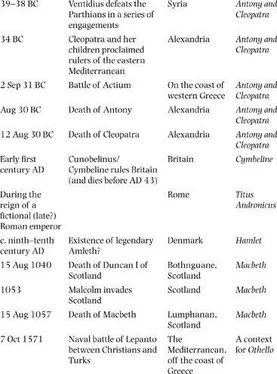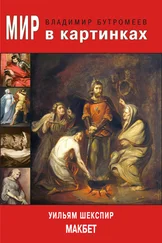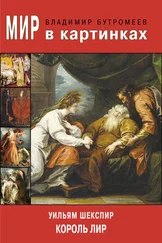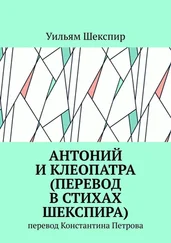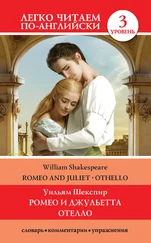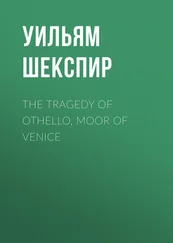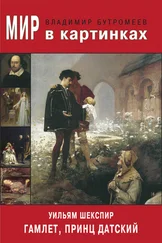Уильям Шекспир - Othello
Здесь есть возможность читать онлайн «Уильям Шекспир - Othello» — ознакомительный отрывок электронной книги совершенно бесплатно, а после прочтения отрывка купить полную версию. В некоторых случаях можно слушать аудио, скачать через торрент в формате fb2 и присутствует краткое содержание. Жанр: Старинная литература, на английском языке. Описание произведения, (предисловие) а так же отзывы посетителей доступны на портале библиотеки ЛибКат.
- Название:Othello
- Автор:
- Жанр:
- Год:неизвестен
- ISBN:нет данных
- Рейтинг книги:4 / 5. Голосов: 1
-
Избранное:Добавить в избранное
- Отзывы:
-
Ваша оценка:
- 80
- 1
- 2
- 3
- 4
- 5
Othello: краткое содержание, описание и аннотация
Предлагаем к чтению аннотацию, описание, краткое содержание или предисловие (зависит от того, что написал сам автор книги «Othello»). Если вы не нашли необходимую информацию о книге — напишите в комментариях, мы постараемся отыскать её.
Othello — читать онлайн ознакомительный отрывок
Ниже представлен текст книги, разбитый по страницам. Система сохранения места последней прочитанной страницы, позволяет с удобством читать онлайн бесплатно книгу «Othello», без необходимости каждый раз заново искать на чём Вы остановились. Поставьте закладку, и сможете в любой момент перейти на страницу, на которой закончили чтение.
Интервал:
Закладка:
A Military LifeFrom a technical viewpoint, Othello makes no special demands in staging. The emotions tapped in the play—love, hate, jealousy, envy—are so elemental that elaborate settings may actually detract from the bare display of them. Scene changes are likely…to break the momentum…The realism of the play lies in its emotional development, not in scenery. 59This statement was proved when in 1961 Franco Zeffirelli staged Othello in full Venetian splendor. Elaborate sets with massive scene changes may have given the stage the genuine look of Renaissance Italy, but killed the sense of claustrophobia and unstoppable momentum, and completely dwarfed the actors’ performances.One of the major difficulties has been to balance the play’s public dimension with the personal space of private emotion:The gradual narrowing of the play’s locales is but one contributor to the play’s remorseless focusing on the personal lives of the main characters: life in the great Mediterranean city contracts to a beleaguered island and its frightened populace, then to the rooms in Othello’s headquarters, and then to the marriage bed round which the curtains are finally drawn to shut out the sight of the pain that can ultimately be only personal. 60Ralph Koltai, designer of Terry Hands’ 1985 production, went for a minimalist interpretation. The characters were in Elizabethan dress, but the setting consisted of a black stage with “smoked-perspex screens edged with gold,” 61behind which sat “sculptural emblems of a Cypriot crucifix later replaced by a dangerously resting gold lion,” 62an emblem of Venetian imperialism.There is little stage furniture, scarcely any attempt at social realism. A few flickers of light on the back wall suggest Venice; the storm that marks Othello’s arrival at Cyprus, brilliantly taking its cue in a welcome suggestion of diabolism from Iago’s “Hell and night / Must bring this monstrous birth to the world’s light,” is the only big production number: lights blindingly flash, the noises of thunder are theatrical rather than natural. The overall effect of the design … is to release the play from local associations and to put the focus very much on the actors, who perform urgently, with a high degree of psychological realism. 63Starting with John Barton in 1971, most recent productions have emphasized the military setting of the play. Thus the public element remains without taking away from the intimacy of the action. With this genuine sense of army life we get important distinctions in rank from costume, rules of conduct influencing characters’ behavior, and the isolating effect of the army barracks on Desdemona.Julia Trevelyan Oman, designer of the 1971 production set in the nineteenth century, was influenced by early war photographs from the Crimea and American Civil War:They represent the past, but the near past, and the uniforms and background details still have a poignant reality and emotional appeal for us…I see Cyprus as a remote dusty army outpost cut off from civilisation, and Othello himself as a soldier as different in manner and dress from the other professionals in his army as Napoleon or Rommel from theirs. 64In this barrack atmosphere, heavy with the celibate fantasies of men herded together in heat, it’s easy to understand why Othello should trust his senior NCO more than his new bride from home; how jealousy might crackle through his imagination like fire through a dry thorn-bush. Meaning is restored to the play’s talk of honour, reputation. Where else, today, but in the Army could we accept a drunken fight spelling disgrace for Cassio or a man regarding his wife’s infidelity as the ruin of his career? 65Michael Attenborough’s 1999 production used an Edwardian militaristic world with special attention paid to the inevitable tensions and jealousies of army life:Cyprus feels like a British colonial outpost with soldiers in red tunics, Desdemona in a muslin dress and army bands playing in the distance: as in Much Ado , it strikes me that Shakespeare understood the peculiar danger of the aftermath of conflict when leisure afternoons are filled with malice and mischief…it is the military context that gives resonance to [Richard] McCabe’s wonderfully observed Iago…When Cassio taunts him with the fact that the lieutenant must be saved before the ensign, you see a look of pure hate, quickly masked, flash across McCabe’s eyes…. 66Stephen Brimson Lewis’ set in 2004 intensified the sense of claustrophobia in the play by having “a framework of rusting, corrugated iron and a wire fence, [which] vividly suggests a decaying end of empire location, a military stockade behind which Othello and his men retreat.” 67The army barracks become a microcosm of Venetian life isolated within enemy territory. Trevor Nunn’s production in 1989 also hinted at the tensions outside the barrack walls:… costumed by Bob Crowley in a style suggestive of Chekhov crossed with the American Civil War…Watch-dogs bark, clocks chime, while in Cyprus—a place, we are reminded, with larger racial tensions of its own—the cicadas are periodically silenced not only by distant church music, but the muezzin’s call to prayer. 68The influence of the military on personality was vividly demonstrated in Trevor Nunn’s 1989 production, performed in the intensity of a studio theater, The Other Place:Cyprus is clearly defined as a simmering colonial outpost where the women fuss over the barley-water while the men get on with post-war admin…[Ian] McKellen [as Iago] is the absolute embodiment of the professional soldier: every detail is correct down to the little baccy-tin for half-smoked cheroots and the obsessive way he tidies his barrack-room blankets. 69McKellen’s performance in 1989 was noted for this fastidiousness born out of army life:Psychotically unable to tolerate disorder, Iago is perpetually tidying up the barracks, righting overturned chairs, pouncing on the litter. For this “model” NCO, the marriage of Desdemona and black Othello, an even more conspicuous irregularity in his world, naturally demands eradicating too…Unsmiling, the least jocular of Iagos, McKellen establishes no rapport with the audience—something of a feat in The Other Place—let alone the usual sense of complicity. In this terrifying performance, asides, like soliloquies, are private, echoing inside the desert of his head. 70This militarism and precision of Iago’s devices is what makes the man so chilling. In 2004, Antony Sher’sknowing, nudging, darkly funny performance invites us to appreciate the intricate mechanics of destruction. And in his modern khaki his Iago looks like a chunky, florid blend of an Afrikaner cop and the moustached Hitler; but nobody could more subtly use concern, helpfulness, moral indignation and blunt soldierly decency to lure a man and a marriage on to the rocks. It’s awful and it’s impressive. 71
A Woman’s PlaceIn a military world the role of women is marginalized, although clearly defined. As in John Barton’s 1971 production, the effect is toisolate and make Desdemona more vulnerable, and the innate brutality of the play more obviously naturalistic. 72The daily life of an army on active service is as foreign and exotic to Desdemona as is her new-made lord. Any support from family, friends and the only society she has known as a gently-nurtured aristocratic girl is removed from her by her voyage to Cyprus, leaving her with only the intimacy of Emilia, whose allegiance is at least partially to her husband. Of course, to Othello the camp has always been the centre of his existence; but this particular camp environment is rendered unfamiliar by the presence of a wife. 73Women are by definition excluded from the battlefield and barracks. Kept in the bedroom and at the dinner table, they share neither the same experiences nor the same intimacies. No wonder the husbands…relate more intensely to their fellows than to their wives. 74In 2004, Greg Doran createda predominantly male, militaristic society in which women are either romanticised or treated as whores. Lisa Dillon’s fragile, loyal, indisputably loving Desdemona wanders into this world like a rose waiting to be crushed. And Amanda Harris’s Emilia…is a perfect portrayal of the hardened service wife who has long learned to adjust to this brutal male ethos. 75The attitude toward women was portrayed as disturbingly misogynist:The Venetian soldiers…are so sloppily dressed they look as if they’d have trouble controlling Mykonos, let alone Cyprus; but they’re a nasty lot, who punch Nathalie Armin’s harmless Bianca and push around the Islamic women who gather on cushions at the front of the stage or lurk behind steel netting at its rear. 76This issue of Iago’s repulsion toward physical contact with his wife has been played as disgust at her supposed infidelity, and as a homosexual leaning, but is also indicative of the redundancy of these women in a man’s world. Michael Attenborough’s attention to this fact was highly praised when he directed Othello in 1999:The virtue of this production is that it creates a militaristic world where women’s needs and desires go unrecognised: the drinking-scene, in particular, is beautifully staged with the men engaging in bizarre quasi-homosexual rituals. And part of Iago’s tragedy is that he is so much a creature of this world that he sees women as little more than sexual objects waiting to be crushed. 77Of course, Iago is severely psychologically twisted; his view of everyone, but especially women, rancid with images of bestiality. One instantly pities Emilia. In 2004, what incited Antony Sher’s Iago wasa disgusted fascination with sex. Amanda Harris’s excellent Emilia, his embittered wife, repels him so much that his fingers move into strangling mode before they readjust into shoulder massage. 78His jealousy of Emilia is only proprietorial. Here…Harris’s performance brilliantly fills in the picture. She is tense and tired, smokes nervously, takes the odd tipple and is clearly bored to the gills with Iago’s wise-guy joviality and heavy-handed sex jokes. In this marriage, she is an object, but a dangerous object: at the end Iago stabs her in the genitals. 79In 1985:The Emilia of Janet Dale is a marvellous study in rejected sexuality, canoodling her way for a fleet moment into Iago’s favour with the procured handkerchief only to find herself spun from the embrace in a premonition of [Ben] Kingsley’s “turn, turn, turn” humiliation of Desdemona which leads to a truly shocking slap on the face. 80At the beginning of the play, Othello’s demonstrative affection for his new bride distinctly marks out his behavior as different from the rest of his command. In 1999:Military discipline and ceremonial are the façade cracked open by Othello’s infatuation with Desdemona. The obliviousness of Fearon’s Othello to the embarrassment of Lieutenant Cassio (Henry Ian Cusick) at his hungry fondlings of Desdemona on the quayside makes it more than usually credible that he should be so blind to Iago. 81As Iago’s poison works on Othello we see his behavior and language toward women change. Othello physically demonstrates the bestial behavior which Iago only thinks and talks about. They become two sides of the same jealous monster. In 1979:Sinden conveys the ecstasy of jealousy with splendid conviction. At one point he is reduced to emptying his wife’s laundry basket and sniffing the sheets for evidence of copulation. And he carries the humiliation of Desdemona further than I have ever seen by threatening to tup her in front of Emilia and by hurling her contemptuously to the ground in front of the Venetian visitors. 82Shakespeare presents us with two women at either end of the scale, one who has suffered at the hands of a brute, and is worldly-wise through her experiences as both abused and army wife, and one new to that lifestyle and marriage. Imogen Stubbs as Desdemona in Trevor Nunn’s production was very girlish in nature:There is an apt sense of Desdemona the daughter about this interpretation. Her teasing and cajoling manner is that of a favourite young girl playing up to her daddy. As well as emphasising the generation gap, it helps Iago when he opportunistically reminds Othello how she was false to her father in Venice in order to get away from his arms. 83hurling herself prematurely into an adult world, [Desdemona] is fragile, lovely, spoilt, manipulatively aware of her charm, and very young…On the quayside, waiting for Othello, her flippant exchanges with Iago reveal a deep uncertainty as to how a married woman ought to behave under such circumstance, and end in tears. 84The development of the relationship between Desdemona and Zoë Wanamaker’s Emilia in this production was given an added depth, poignancy, and focus. Traditionally, she is portrayed as the “warm, motherly Emilia,” 85but more recent productions have cast women with less of an age difference in the two roles. In 1989, the two women started out as strangers, Emilia being reluctantly assigned to the task of companion-cum-maid. This made better sense of the fact that Emilia doesn’t admit to Desdemona that the handkerchief has been taken:[She] seemed to be jealous of a relationship which made her acutely aware of the inadequacy of her own marriage. When Emilia denies to Desdemona any knowledge of what has happened to the handkerchief, it can be an uncomfortable moment inconsistent with loyal friendship, but for Zoë Wanamaker it read powerfully as a moment in which she was prepared to have Desdemona suffer a little of the marital disharmony that for Emilia was habitual. 86The willow song scene acted as a breaking down of the divisions between the two women. At first reluctant to emotionally engage with this inexperienced girl, even pushing her arms from her when Desdemona hugs her for comfort, their shared experience betrayed a developing bond. In a clever piece of directing, the two women were linked in the final scenes by combining their voices. After smothering Desdemona with his hand, Willard White’s Othello lay back on the bed, distraught. Outside Emilia was heard calling gently “My lord, my lord.” In a voice almost spectral in its urgency and tone, Othello believed that he was hearing Desdemona’s voice, took the pillow and then smothered her again. As Desdemona struggled to utter her last words, Emilia helped her by completing her sentences. 87She berates Othello and as her own culpability is revealed she displays remarkable courage and moral strength. For Zoë Wanamaker, this was all the more powerful because of the absence of any easy sentimentality in her earlier relationship with Desdemona. 88Significantly, Emilia was left dead on the floor, ignored by those present, with no word of her sacrifice.
Читать дальшеИнтервал:
Закладка:
Похожие книги на «Othello»
Представляем Вашему вниманию похожие книги на «Othello» списком для выбора. Мы отобрали схожую по названию и смыслу литературу в надежде предоставить читателям больше вариантов отыскать новые, интересные, ещё непрочитанные произведения.
Обсуждение, отзывы о книге «Othello» и просто собственные мнения читателей. Оставьте ваши комментарии, напишите, что Вы думаете о произведении, его смысле или главных героях. Укажите что конкретно понравилось, а что нет, и почему Вы так считаете.
